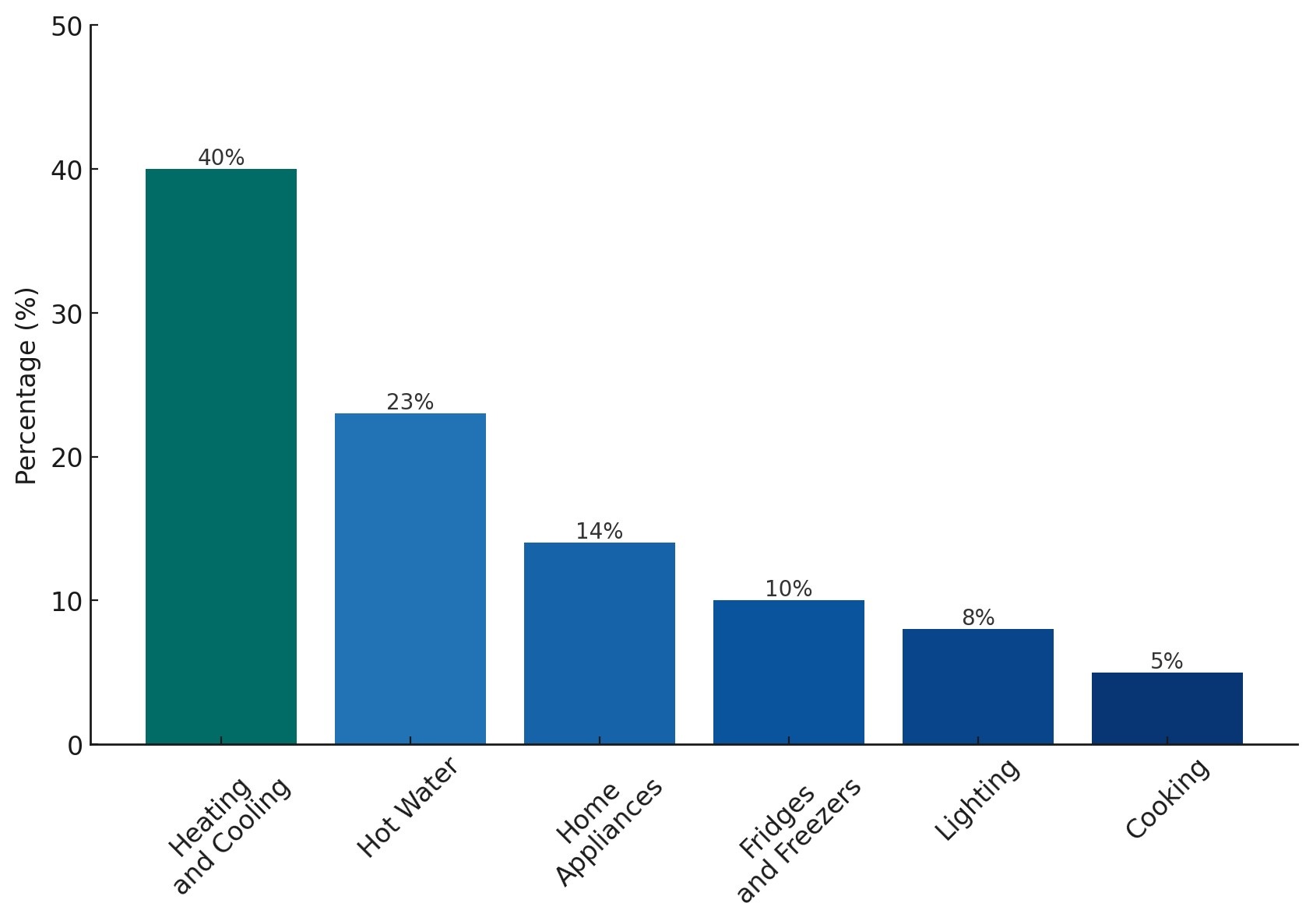Save energy in your home
The most important thing you can do in terms of energy use is to reduce the amount you use. This will save you money as well as reducing your greenhouse gas emissions.
Average energy usage for homes without pools:

Heating 40%, hot water 23%, home appliances 14%, fridges and freezers 10%, lighting 8% and cooking 5%.
Source: Department of the Environment, Water, Heritage & the Arts.
Ways to reduce your energy costs:
- Know how much you use. Read your energy bills and understand where to find your usage, costs and how they compare to similar households.
- Buy energy efficient appliances. Energy efficient appliances may cost more to buy but they save money in the long run as they cost less to run. When you buy a new appliance, use the energy rating label to compare models and choose one that suits your needs, saves energy and saves money.
- Electrify your home. You can save money through efficiency upgrades and electrification. Consider switching to reverse cycle air conditioning, a heat pump hot water system, an induction cook top, and other household energy efficiency products, as well as adding insulation.
- Have you considered a solar PV system? Council offers a Solar Bulk Buy program so residents can buy quality products at a special Willoughby City Council price.
Borrow a thermal camera to improve your home's energy efficiency
Reduce your bills and improve the comfort level of your home or office and borrow one of our high quality FLIR C3-X thermal imaging cameras from Willoughby City Library in Chatswood. The camera can be loaned out to residents with a current full Willoughby City Council Library membership, for a period of 3 weeks.
Use the thermal camera to identify warm or cold air leaks into your home, such as gaps around windows, doors and insulation (walls, ceiling, floor). You can then fix these leaks to save money on your heating and cooling bills, and reduce your home’s greenhouse emissions.
Get started:
Energy and water tips for pool owners
A typical pool pump can use more electricity than all other household appliances combined and increase water use by 10%*.
Make your pool more energy and water efficient by:
*According to the Building Sustainability Index a pool pump adds 17% energy consumption to the average NSW household, using 1,500kWh of power each year. If used all day and night, in the space of a year a typical pool pump can use more electricity than all other household appliances combined.
In addition, a backyard pool can increase water consumption by 10%. The average domestic pool in NSW is approximately 45,000L and requires a similar volume of water every two years to keep this full, due to evaporation, splash and backwash factors.
Energy Wise videos on energy efficiency
Let’s have a closer look at your energy bill in this video:
The key to a comfortable home is efficient heating and cooling. Let’s find out how to stay cool in summer and warm in winter the smart way in this video:
Paying for nothing while your appliances are sitting idle? Let’s have a closer look at standby power in this video:
Let’s have a closer look at insulation and sealing in this video:
Let’s have a closer look at how much power your hot water system uses and how to reduce it in this video: